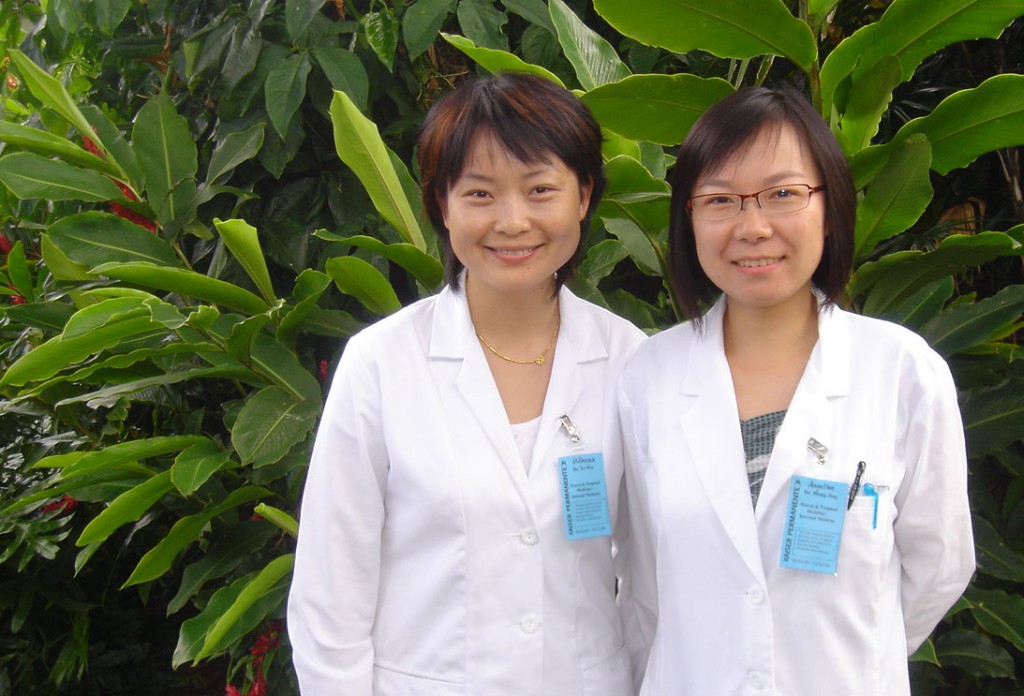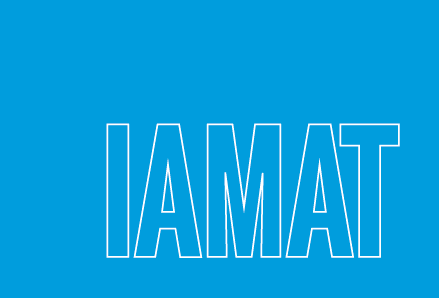
We recently met up with Dr. Ye Wei (Winona) and Dr. Meng Jing (Angeline) to talk about their two-month internship at Kaiser Permanente’s Koolau Clinic and Honolulu Clinic in Hawaii. The two medical practitioners from China were each awarded a scholarship through our International Travel Medicine Education Program. The fund, which is solely supported by the generous donations of IAMAT members, has given 13 scholarships since 2002.
Chosen for their leadership skills, the two doctors will return home to teach their colleagues the skills they have learned in Hawaii, improving travel medicine practices in their workplace for the benefit of ill travellers.
The art and science of travel medicine
During the two-month intensive training program, Angeline and Winona are immersed in all aspects of pre-travel advice, travel medicine diagnosis, and post-travel consultation.
When asked what interests them most about travel medicine, their enthusiasm is inspiring. At the heart of their work is cultivating the relationship between caregiver and patient, ensuring that travellers are well informed to prevent the spread of infectious diseases and ultimately having a safe and healthy trip.
For Winona, who works at the Shanghai International Travel Healthcare Center, travel medicine is a multi-disciplinary subject. “Not only does it deal with medical and diagnostic aspects, but I have to be knowledgeable in world and regional geography, local climate, cultural and societal differences, legal requirements regarding medication and vaccination for the patient’s destination. Providing comprehensive travel health advice to travellers is an art.”
“No two consultations are exactly the same,” adds Angeline who likes the diversity of her work. The challenge is to provide individualized recommendations for each traveller and keeping up with the latest in the constantly evolving field. “It’s really important to keep up with up-to-date concepts and practices if you want to improve yourself in this field,” she notes.
Getting the scholarship gives her the chance to kick-start her professional career in the field. A doctor at the Sichuan International Travel Healthcare Center, Angeline hopes to expand her scope of knowledge and share it with her colleagues and as many travellers as possible. “Since I am a novice in the field, the IAMAT scholarship has promised me a good beginning and I think that I’ll have a bright future in travel medicine. I am so lucky to have IAMAT as a guide from the very beginning of my training. People always say that having a good beginning is already half the battle.”
Winona says that for her, the internship is an opportunity to expand her qualifications and further promote travel health in China. “I have worked at my Clinic for almost eight years as a doctor and becoming a IAMAT scholar gives me the chance to go outside of China to increase my understanding of travel medicine.” She tells us that through her background in immunology, she’s interested in vaccine recommendation principles, specifically how they apply to different age groups and a patient’s past and current health status.
Helping international travellers
Travel medicine is a relatively new discipline in China and is coming to prominence in large part to the economic reforms that have drastically increased the country’s incoming and outbound international travel. Since 1995, IAMAT has been instrumental in advising the country’s travel medicine and health network, the Chinese International Travel Healthcare Association (CITHA), develop and improve travel medicine practices among their clinics.
Says Angeline, “One of the first things I will do after I return is to share my experience with my colleagues and make as many people aware about the importance of travel medicine. The majority of Chinese people have not heard about travel medicine, so going for a pre-travel consultation to protect themselves is obviously not on their list.” Her clinic will also start offering post-travel evaluations to Chinese nationals returning home after long-term working assignments in countries like Zimbabwe or the Democratic Republic of Congo where they are at high risk of contracting infectious diseases such as malaria or yellow fever.
A key component of IAMAT’s scholarship program is to promote cross-cultural exchanges of medical knowledge and practices. It offers a chance for our scholars and their Hawaiian colleagues to exchange ideas and developments in the field practiced in their respective countries.
Training in Hawaii is a good opportunity to brush-up on their English speaking and writing skills. Says Angeline, “Having good communication skills, especially with someone of different education and cultural backgrounds is important.”
A typical day at the clinic
The two interns have a busy schedule. Training takes them to the Koolau Clinic three times a week and to the Honolulu Clinic twice a week. Their day starts at 8:00am and usually ends at 5:00pm, in addition to studying in the evenings. Their supervisors, Dr. Vernon Ansdell and Dr. Johnnie Yates provide them with information about the patient’s travel destination and health status the day before the client comes to the clinic, that way they have time to prepare their cases.
They also participate in the actual patient visit and provide advice based on their prior research and discussions with their colleagues. They are also given hypothetical cases to study and present the best approaches based on the patient’s needs. “Through self-directed learning, discussion and problem-solving I can understand and master the key points of a specific case,” says Angeline.
For her part, Winona enjoys the face-to-face consultations with patients, especially meeting new people and learning about their destinations and reasons for travel. Seeing how their colleagues interact with their patients is refreshing. “They are so warm-hearted and sincere with their patients, like old friends,” notes Winona. The professionalism and physician-patient interaction is one aspect of her training that she’ll take back to China to teach her colleagues. Adds Angeline, “The consultation part is neat, because face-to-face communication is direct and flexible. You don’t know what patients will ask you or tell you, but you are the one leading the conversation.”
The internship, however, is not all about studying. Both Winona and Angeline take the time to learn about Hawaiian culture and do sightseeing on weekends. They recently visited Diamond Head volcano and are planning to do some snorkeling soon. Being away from home for a long time can be hard, but both women keep in touch with their family and friends through online video-chatting. Winona, who has a five year-old son, Wang Ye Da, also writes about her overseas experiences on her Blog (in Chinese). “The people at the Clinic are so nice, so friendly, and they help me a lot, such as picking me up to go sight-seeing and going to restaurants to eat local specialties. I’m not lonely.”
Photo credit: Vernon Ansdell



